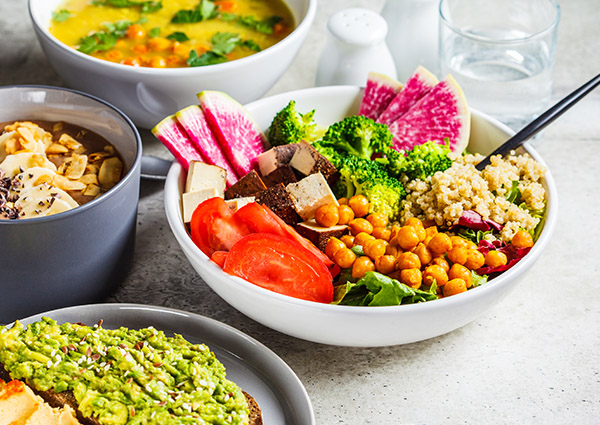
Diabetes and Plant-Based Diets: What to Expect
Diabetes affects 13% of the adult U.S. population, while a third have prediabetes. A major factor in the development of diabetes is diet.
What is a Plant-Based Diet?
So is a plant-based diet the same thing as being vegan or vegetarian? Not necessarily. All vegan and vegetarian diets are plant-based, but not all plant-based diets are vegan or vegetarian. A plant-based diet is one focused on fruits and vegetables as well as grains, seeds and nuts but it doesn’t necessarily eliminate meats entirely.
Why does a plant-based diet help?
Recent research has lauded plant-based diets as the answer. One study found that those who ate a plant-based diet reduced their risk of type 2 diabetes by 23%; those who ate a nutritiously focused plant-based diet reduced their risk even more (30%).
Those who eat such diets tend to weigh less, and being overweight or obese is a major risk factor for diabetes. But just skipping meat in meals doesn’t necessarily mean losing weight; for instance, eating loads of processed foods that are full of empty calories isn’t a good substitute for meat and won’t likely help you shed pounds. However, a healthy plant-based diet is naturally full of fiber, which leads to feeling full and the likelihood you won’t overeat.
But the reduction in diabetes may also be attributed to nutrients in the plants that reduce inflammation and promote healthy insulin levels. Also, if you are consuming primarily or exclusively fruits, veggies and other healthy foods, you aren’t eating loads of sodium, sugars, saturated fats or cholesterol.
Additionally, a plant-based diet is often full of magnesium, known to help ward off diabetes. Many fruits and veggies also contribute to a gut microbiome that also lowers the risk for the disease.
How to go plant-based
- Aim for healthy protein choices: tofu, nuts, beans and leafy greens are great sources. Dairy products, eggs and small amounts of lean meats are fine just as long as they aren’t the focus. (Keep meat portions to no more than 2 servings that are the the size of a deck of cards each.)
- Complex carbs are a must. Think oats, whole wheat breads, cereals and pastas, as well as many fruits and veggies.
- Avoid most processed foods, but learn what prepackaged snacks and foods are healthy options for a quick meal when pressed for time so you don’t opt for fast food.
- Find out about sources of vitamin B12, iron, calcium, zinc and omega-3s, as these may require a bit more attention to work into your plant-based diet.





